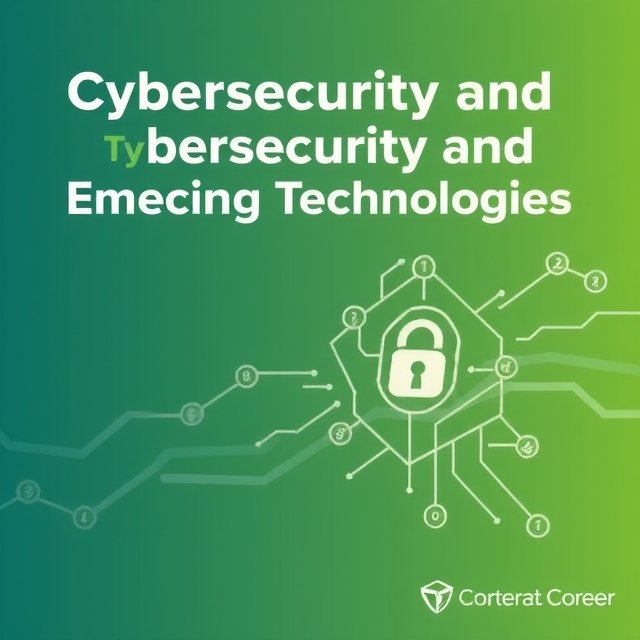
Introduction to Scams in 2024
As we enter 2024, the landscape of scams has evolved significantly, driven largely by advancements in technology and the increasing reliance on digital platforms. Scammers are utilizing sophisticated techniques and tools, marking a concerning trend in the prevalence of deceptive practices. In recent years, we have observed a dramatic rise in cybercrime, with scammers exploiting vulnerabilities in various online systems to defraud unsuspecting individuals and organizations.
The rapid acceleration of digital transactions, remote work environments, and social media interactions has created a fertile ground for scammers to operate. Many individuals, perhaps unwittingly, put their personal and financial information at risk by sharing it online or engaging in transactions with unknown entities. This reality necessitates a cautious approach when navigating the digital realm. One must remain vigilant against new and evolving deceitful tactics that scammers employ to exploit individuals’ trust and lack of information.
Moreover, the pandemic-induced shift towards online services has further widened the door for fraudulent activities. With an increased number of people working from home and relying on digital tools for daily tasks, the chances of falling victim to a scam have grown. Phishing schemes, identity theft, and fraudulent online marketplaces are just a few examples of the types of scams that are proliferating in the current environment.
Given the state of affairs, it is vital to educate oneself about the latest scams and the techniques employed by fraudsters. Awareness is the first step in protecting against these threats, as being informed can empower individuals to recognize red flags and act accordingly. In 2024, staying aware of the various forms of scams and adopting precautionary measures will be essential for ensuring one’s safety in an increasingly digital world.

Common Scams of 2024
As society becomes increasingly reliant on technology, the landscape of scams continues to evolve. In 2024, several common scams are expected to gain traction and pose significant threats to individuals and organizations alike. One of the most notorious scams anticipated to proliferate is phishing attacks. This form of deceit typically involves the use of fraudulent emails or messages that appear to be from legitimate sources, enticing victims to divulge sensitive information such as usernames, passwords, or financial data. Because these attacks exploit familiarity and trust, individuals across various age groups and demographics are vulnerable targets.
Additionally, tech support scams remain prevalent. In this scenario, scammers often impersonate technical support representatives from reputable companies, claiming that the victim’s device is infected with malware or needs urgent updates. The culprits then manipulate their victims into providing remote access to their computers or paying for unnecessary services. Individuals who are less tech-savvy, particularly older adults, tend to be at the highest risk for falling prey to these manipulative schemes.
Another significant form of fraud that is anticipated to escalate is online shopping fraud. With the rise of e-commerce, many consumers unknowingly find themselves on counterfeit websites that mimic legitimate online retailers. These sites often provide enticing discounts or limited-time offers, prompting individuals to enter their payment details without verifying the site’s authenticity. Such scams primarily target online shoppers, especially during peak sale seasons when impulsive buying is common.
In conclusion, the scams expected to dominate in 2024 demonstrate a range of methodologies designed to exploit various vulnerabilities. By understanding their characteristics and the demographics they target, individuals can take proactive steps to safeguard themselves against potential fraud. Becoming informed about these common scams is essential in mitigating risks and ensuring safer online experiences.

Social Media Scams: Trends to Watch
As we move through 2024, the landscape of social media scams continues to evolve, presenting new challenges for users and platforms alike. Social media has increasingly become a breeding ground for fraudulent activities, with an alarming rise in scams designed to exploit unsuspecting individuals. The latest trends include fake giveaways, impersonation accounts, and influencer deceits, often leading to significant financial losses and emotional distress.
Fake giveaway scams have surged in popularity, tricking users into believing they can win enticing prizes. Often, these scams employ high-profile accounts or brands to lend credibility. A recent study indicated that approximately 30% of social media users reported encountering such scams, particularly on platforms like Instagram and Facebook. The perpetrators typically ask participants to share posts, tag friends, or even provide personal information, ultimately compromising user security.
Impersonation accounts are another pressing issue where scammers create fraudulent profiles that mimic legitimate individuals or organizations. These accounts often connect with followers, developing rapport before coaxing them into making payments or providing sensitive information. According to research, the number of impersonation accounts has increased significantly, with TikTok reporting a 40% rise in such activities. This tactic not only damages the reputation of the legitimate accounts but also erodes trust within communities.
Furthermore, the rise of influencer deceits has transformed how scams are orchestrated. As social media influencers gain traction, their platforms become targets for con artists seeking to capitalize on their popularity. Cases of influencers promoting counterfeit products or involved in misleading endorsements have raised concerns among users. A survey conducted in early 2024 revealed that around 25% of respondents encountered an influencer who misrepresented a product or service.
In recognizing these growing threats, users must remain vigilant on social media platforms and practice skepticism when engaging with posts that seem too good to be true. Awareness and education are critical in combating the proliferation of such scams.

Protecting Yourself from Financial Scams
As technology advances and the digital landscape expands, the prevalence of financial scams continues to pose significant threats to consumers. To protect oneself from potential scams, it is crucial to adopt proactive measures and enhance financial literacy. Understanding the tactics employed by scammers can significantly reduce the risk of falling victim to fraudulent schemes.
One of the most effective ways to safeguard against financial scams is by being vigilant about recognizing red flags. These may include unsolicited communications, high-pressure tactics, and offers that sound too good to be true. Always question requests for personal information, such as Social Security numbers or bank details, especially when they are delivered via email or text messages. Scammers often use these techniques to exploit individuals, leading to unauthorized access to their accounts and financial loss.
In an era where information is readily available at our fingertips, financial literacy plays a key role in enabling consumers to identify and avoid scams. Educating oneself about basic financial principles, consumer rights, and the latest trends in financial fraud empowers individuals to make informed decisions. Knowledge of common scam tactics, such as phishing emails or fake investment opportunities, helps in distinguishing legitimate offers from potentially harmful ones.
Utilizing protective tools can also serve as a vital strategy against scams. Credit monitoring services provide real-time alerts for unusual activity on one’s credit report, which can help detect potential identity theft before it escalates. Additionally, implementing strong, unique passwords and regularly updating them can help secure personal accounts from unauthorized access.
By remaining informed and cautious, individuals can take significant steps toward safeguarding their finances and personal information. As financial scams evolve, so must the strategies to counteract them, ensuring a proactive stance against deceitful practices in 2024 and beyond.

Cybersecurity and Emerging Technologies
The rapid advancement of technology continues to shape various sectors, with cybersecurity standing out as a critical area affected by these changes. As scammers develop increasingly sophisticated methods to exploit vulnerabilities, the role of cybersecurity becomes paramount in combating the latest scams. In 2024, organizations and individuals alike must prioritize enhancing their cyber defenses to safeguard against fraudulent activities.
Among the technologies that have emerged in the fight against scams are artificial intelligence (AI) and machine learning. These tools enable cybersecurity experts to analyze vast amounts of data quickly and efficiently, identifying patterns indicative of potential fraud. By employing advanced algorithms, organizations can detect unusual behavior that may signal a scam, allowing them to take proactive measures before significant damage occurs. Furthermore, automated systems can respond in real-time to mitigate risks associated with unauthorized access or suspicious transactions.
However, the landscape of cybersecurity is not without its challenges. Scammers are also leveraging AI and machine learning to refine their tactics. This includes the creation of more convincing phishing schemes and impersonation tactics, making it increasingly difficult for individuals to discern legitimate requests from fraudulent ones. As deepfake technologies continue to evolve, scammers can utilize synthetic media to impersonate trusted figures, thereby manipulating victims into providing sensitive information or financial assets.
Understanding the dual nature of these technological advancements is crucial for consumers and organizations alike. Emphasizing education about cybersecurity best practices is essential for mitigating the risks posed by emerging scams. This education should include recognizing the signs of scams, enhancing password policies, and implementing multi-factor authentication. By staying informed and employing updated cybersecurity measures, individuals and organizations can better protect themselves against the surging tide of scams in an ever-evolving digital landscape.

Scams Targeting Senior Citizens
As we advance further into 2024, one of the most concerning trends observed in the landscape of fraud is the targeted exploitation of senior citizens. This demographic, often perceived as vulnerable due to potential cognitive decline or social isolation, has become a prime target for various scams that leverage emotional manipulation tactics. Scammers employ a mix of deceit and psychological strategies to exploit the trust and compassion of elderly individuals, leading to devastating financial losses.
Common scenarios involve phone calls or emails from individuals impersonating trusted entities, such as healthcare providers, government agencies, or even family members in distress. A particularly alarming form of these scams includes calls claiming that the elderly individual owes money for taxes, utilities, or medical expenses, insisting immediate payment is required to avoid legal consequences. These tactics not only induce fear but also pressure victims into compliance without verifying the legitimacy of the claim.
Another prevalent scam involves romance fraud, where con artists create a false online persona to cultivate a relationship with an elderly individual. Once trust is established, they often solicit funds under the guise of emergencies, travel expenses, or even fraudulent investment opportunities. This emotional manipulation can lead to significant financial ruin, leaving seniors devastated and often questioning their judgment. The decline in face-to-face interactions due to social distancing measures has only exacerbated the issue, leaving many older adults more susceptible to such scams.
Education is crucial in combating this pervasive issue. Awareness programs designed to inform senior citizens about potential fraud tactics are essential for equipping them with the tools to recognize and resist scams. Families and caregivers also play a vital role in this education, encouraging open conversations and vigilance to protect their loved ones from exploitation.

Government Initiatives and Regulations
In 2024, governmental bodies are actively addressing the pervasive issue of scams through a series of robust initiatives and regulations aimed at protecting consumers. Notably, recent legislation has been enacted to strengthen penalties for fraud-related offenses. This legislation underscores a zero-tolerance policy towards anyone perpetrating scams that exploit vulnerable populations. By increasing fines and enhancing penalties for offenders, authorities aim to deter potential scam activities and safeguard consumers.
Moreover, agencies like the Federal Trade Commission (FTC) and the Federal Communications Commission (FCC) have ramped up their efforts in response to evolving scam tactics. These agencies are collaborating to implement new regulations that target unwanted robocalls and deceptive marketing practices. One such initiative includes a comprehensive consumer education campaign designed to inform the public about recognizing and reporting scams effectively. By providing resources and guidelines, the FTC empowers individuals to take proactive steps in protecting themselves and their financial security.
Additionally, the government is advocating for stronger partnerships between private sectors and law enforcement to combat scams. By sharing information and leveraging technologies, these collaborations enable faster responses to emerging threats. For instance, data-sharing agreements between telecom companies and regulatory agencies have proven effective in reducing scam calls by identifying patterns and blocking numbers associated with fraudulent activities.
Consumer protection initiatives have also seen a renewed focus, with increased funding allocated to programs that assist victims of scams. These funds support counseling, education, and legal services for those who have fallen prey to fraudulent schemes. By creating a safety net for victims, governmental bodies not only provide immediate support but also contribute to a broader framework for scam prevention. Overall, these efforts illustrate a commitment to combating the ongoing threat of scams in 2024, ensuring that individuals are better protected and informed.

What to Do If You Fall Victim to a Scam
If you suspect that you have been a victim of a scam, it is crucial to take immediate action to mitigate potential losses and seek recovery. The first step is to report the scam to the relevant authorities. If the scam involved financial transactions, reach out to your bank or credit card company as soon as possible. They may be able to halt further transactions and guide you through the process of disputing unauthorized charges. Additionally, file a report with your local law enforcement and report the incident to the Federal Trade Commission (FTC) in the United States or the equivalent authority in your country.
After reporting the scam, your focus should turn to recovering lost funds, if possible. Depending on the nature of the scam, you may have options to reclaim your lost money. For instance, if you made payments via a credit card, you might qualify for chargeback privileges, provided you act swiftly. If you transferred money via services like Western Union or PayPal, reach out to those services for any potential recovery processes they may have in place. Be persistent and follow up with all involved parties regularly.
Coping with the emotional fallout of falling victim to a scam is often overlooked but equally important. Victims may experience feelings of embarrassment, anger, or anxiety. It is essential to seek emotional support through friends, family, or professional counseling services. Many organizations offer resources specifically for scam victims to help them navigate their feelings and recover their sense of trust in others. Support groups, both online and in person, can provide a sense of community and understanding for those who have experienced similar distress.
Overall, the steps outlined above can significantly aid you in addressing the aftermath of falling victim to a scam and moving towards reconstruction. With diligence and support, recovery is possible.

Conclusion: Staying Vigilant in 2024 and Beyond
As we progress into 2024, it becomes increasingly important to remain vigilant against the ever-evolving landscape of scams. With the rise of technology and the internet, scammers are constantly devising new methods to exploit unsuspecting individuals. Understanding the tactics employed by these criminals is paramount for protecting oneself and loved ones from potential financial loss and identity theft.
One key takeaway from our exploration of the latest scams is the significance of awareness. By staying informed about the types of scams that are currently prevalent, individuals can better prepare themselves to recognize warning signs. This includes understanding not only the traditional forms of scams, such as phishing and lottery fraud, but also the more sophisticated schemes that are becoming increasingly common in today’s digital age. Awareness serves as a critical defense mechanism, enabling individuals to identify and avoid potential pitfalls.
Moreover, it is vital for individuals to adopt a proactive approach when it comes to scam prevention. Regularly checking reliable sources of information, such as official government websites, consumer protection agencies, and news outlets, can provide valuable updates about current scams and the methods used by scammers. Additionally, sharing knowledge within one’s community can create a ripple effect, fostering a collective understanding of the dangers and leading to greater overall vigilance.
In conclusion, as scams continue to adapt and proliferate, staying proactive and informed is essential in 2024 and beyond. Encouraging conversations about scams among peers, friends, and family not only raises awareness but also fosters a culture of skepticism towards unsolicited communications. By prioritizing education around these issues, we can collectively work towards reducing the impact of scams in our communities, ultimately safeguarding ourselves and others from the consequences of these nefarious activities.